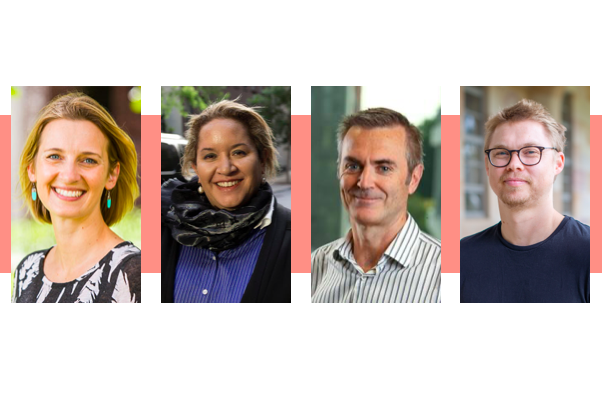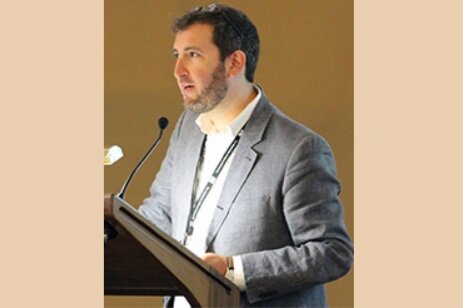

Reforming the rules for free and fair referendum
Gabrielle Appleby, Sean Brennan, Megan Davis & Dylan Lino
19.10.21
A parliamentary committee has decided it is time to review the rules that govern the lead-up to and operation of constitutional referendums in this country. As a group of constitutional law experts at the Indigenous Law Centre, committed to …

NAIDOC Week 2021: It’s Time.
Megan Davis
09.07.21
It is common practice in constitution making around the world that detail of a particular constitutional institution is deferred to the parliament at a later date. Indeed, this was the case with Australia’s High Court. The Court was established and its core functions set out in the Constitution in 1901, but it was set up two years later in legislation by the Parliament.
The same idea applies to the First Nations Voice. As Sean Brennan’s post explains …

NAIDOC Week 2021: What a referendum ballot could and should look like
Ron Levy
08.07.21
If and when the Australian people go to a referendum on whether to constitutionally enshrine a First Nations Voice, they will express their views on a ballot paper. For many Australians, they will never have seen a referendum ballot; for others, it will be over 20 years.
Can design of the referendum ballot lead to a more informed and deliberative engagement of voters with the question at hand? This matters because informed consent, not just consent, by citizens …

NAIDOC Week 2021: 1967 to 2021: What will a successful referendum look like in 2021/2022?
Paul Kildea
07.07.21
Momentum is building towards a referendum for a constitutionalised First Nations Voice. Optimists look back to the 1967 referendum, when more than 90 per cent of Australians voted to include Aboriginal people in the powers of the Commonwealth. But Australia’s overall referendum record is daunting: just 8 of 44 referendums have passed since Federation. What steps can we take to help ensure a successful referendum on a First Nations Voice …

NAIDOC Week 2021: The Wording is Not the Problem
Sean Brennan
06.07.21
One challenge on the path to a successful Voice referendum is to get the wording right for the constitutional amendment. The most important thing is clarity: a well-defined purpose, and clear and simple words that give effect to that purpose. The work here is largely done. The vision for practical reform that emerged from the Regional Dialogues and at Uluru supplies the purpose for this constitutional amendment. The delegates at Uluru called for a representative First Nations institution that would give them a voice – particularly to the nation’s chief law-making body, the …

NAIDOC Week 2021: Why a legislated voice is not a “constitutionally enshrined voice to parliament”?
Elisa Arcioni
05.07.21
Creating an Indigenous Voice in ordinary legislation is creating a fundamentally different thing to establishing it, or “enshrining” or “protecting” it, in the Constitution. And if we consider what the intention of the Voice is, only constitutional enshrinement makes sense.
The First Nations Voice called for in the Uluru Statement from the Heart is intended to be an institutional vehicle through which First Nations peoples can speak to government and …

How Culture Shapes Australia’s Referendum Record
Paul Kildea
11.06.21
Richard Albert’s Constitutional Amendments: Making, Breaking and Changing Constitutions offers a comparative, conceptually rigorous treatment of a complex and significant field in the study of law and politics. In this post I focus on Richard’s ideas about amendment difficulty and how they might help us to make sense of Australia’s recent referendum record and ongoing debates around the constitutional enshrinement of a First Nations …

The First Nations Voice: A modest and congruent, yet radically transformative constitutional proposal
Gabrielle Appleby
11.06.21
Richard Albert reveals in the final page of the introduction to his book, Constitutional Amendments: Making, Breaking and Changing Constitutions, what he wants others to take away from it. First, he wants scholars to reflect on their system of constitutional amendment, to inspire interest in the subject matter and his arguments. Second, he wants the book to be a resource for those embarking on constitutional change: to become ‘a focal resource for leaders involved in making or remaking their constitution …

Designing a Voice to Parliament to strengthen First Nations sovereignty
06.05.2021
Four years ago, the Uluru Statement from the Heart changed my mind on constitutional recognition. Like many, I saw the Recognise campaign and its push for a symbolic recognition of First Peoples in the Constitution as a distraction. A government and corporate-sponsored campaign that would do little to alter the systemic injustice and racism that harms First Peoples across Australia, while giving the appearance of a grand gesture of change …

The First Nations Voice: An Informed and Aspirational Constitutional Innovation
Gabrielle Appleby & John Williams
25.03.2021
All constitutional settlements are a product of their time, place and history, and of the values, knowledge and aspirations of their drafters. In navigating the reality and ambitions of the settlement, drafters will, of course, draw on what they know. A sensible attempt at a new constitutional settlement should be anchored in deep reflection of what has gone before. But …

Submission: The imperative of constitutional enshrinement
18.03.2021
This is a submission that was made to the consultation process on the Interim Report to the Australian Government on Indigenous Voice Co-Design Process (October 2020) by a group of 40 public law experts from across the country. That consultation process closes on 31 March 2021. The submission expresses a strong and unanimous view that for the Voice to have legitimacy, …

Consultation and a First Nations Voice: Building on the Aboriginal and Torres Strait Islander Commission
Harry Hobbs
05.03.2021
In January Ken Wyatt, the Minister for Indigenous Australians, released the Indigenous Voice Co-Design Interim Report. Developed by a Senior Advisory Group led by Professors Marcia Langton and Tom Calma, the 239-page report adds considerable detail to the Uluru Statement from the Heart’s proposed First Nations Voice. The report offers a series of practical and feasible options for how …

Constitutional conversation, institutional listening and the First Nations Voice
Gabrielle Appleby & Eddie Synot
04.03.2021
The Australian government is currently undertaking a process of what it calls “co-designing” an Indigenous Voice that is intended to speak to the Australian government and Parliament when policies and laws are being developed that have a significant impact on Aboriginal and Torres Strait Islander peoples. There is much focus in the Interim Report on the detail of the Voice …

On Voice, and finding a place to start
Sana Nakata
03.03.2021
Where to start
It is hard to know where to start sometimes. Australia-as-we-know-it is often said to start at 1788. But we know better. Still, the forces of our contemporary political moment, our disciplinary training, our institutional arrangements so often have us starting at a point in which Australia has already come to exist. I find this hard …

The relationship between Parliament and the Voice and the importance of enshrinement
Geoffrey Lindell
02.03.2021
In 2017 the Uluru Statement from the Heart called “for the establishment of a First Nations Voice enshrined in the Constitution”. It stated that in 1967 Aboriginal and Torres Strait Islanders “were counted.” In 2017 they sought “to be heard.”
As was observed by Sir Robert Menzies, Australia’s longest serving Prime Minister, in Central Power in the Australian Commonwealth (1967, at 152, 28) …